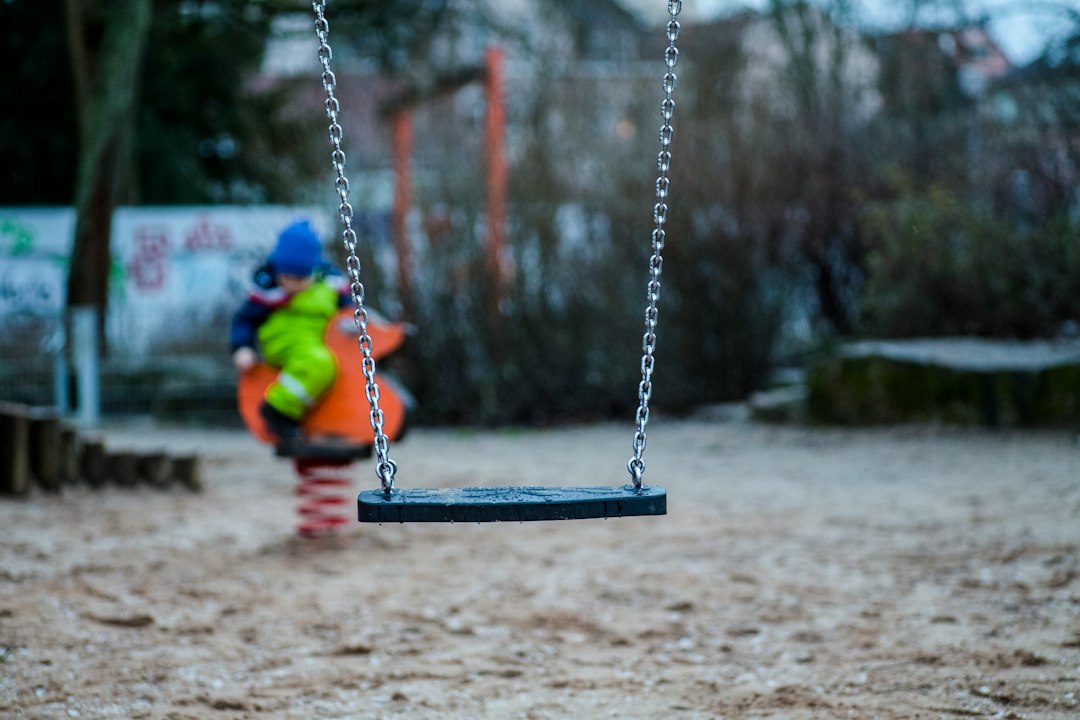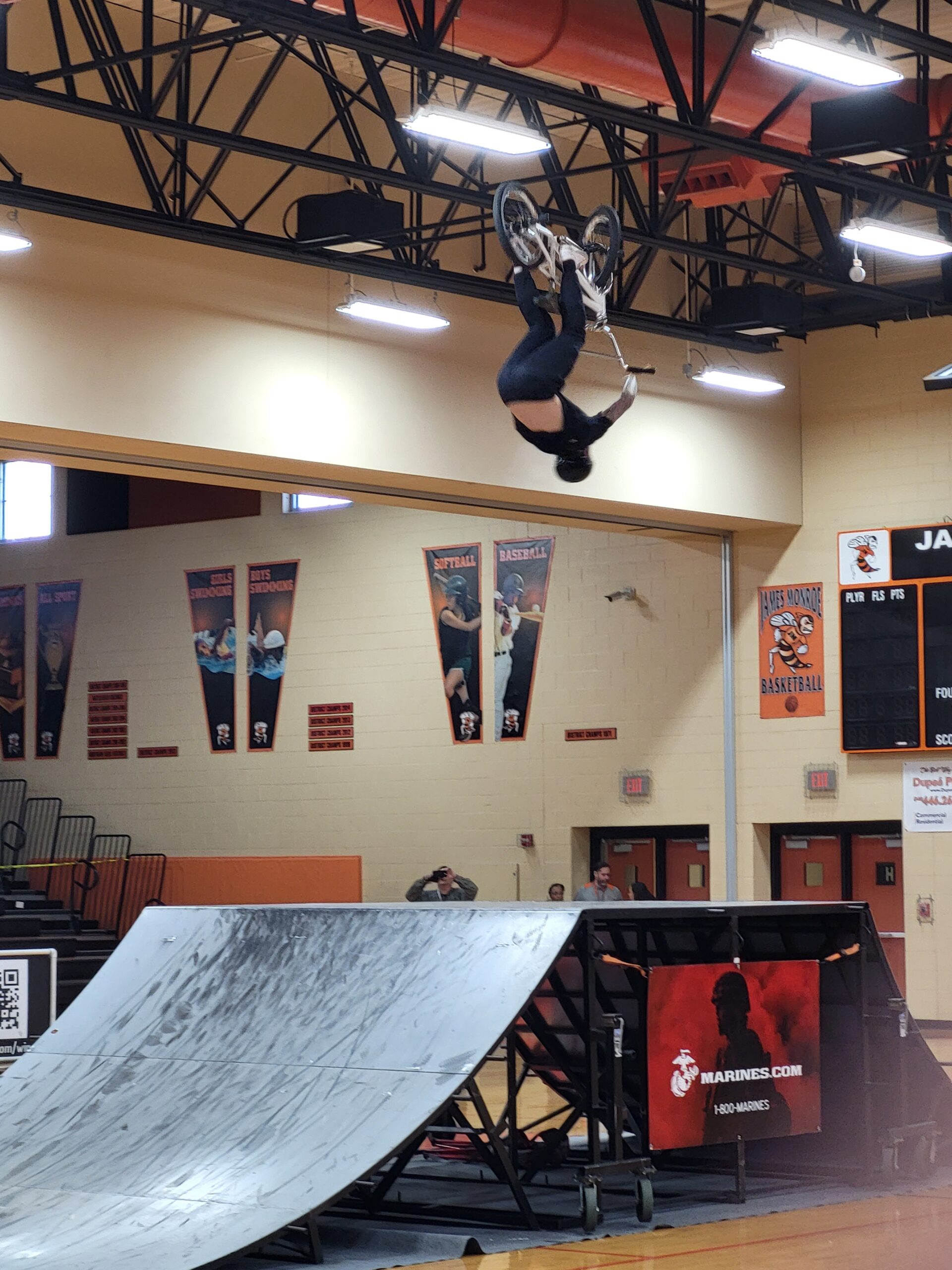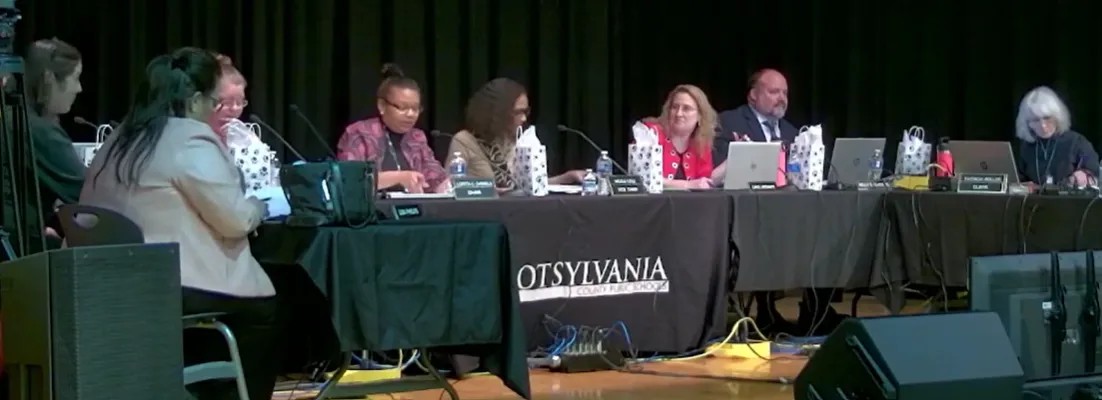
The explosive announcement from KinderCare has brought to the fore the childcare issue that has been vexing members of our community for more than a decade. Buckle up – it’s only going to get worse.
KinderCare’s sudden announcement that it would shutter at the end of May has exposed publicly the very real problems that parents in our region face securing childcare.
The severity of the issue was summed up by Wendy Thomas, a parent with two children who attend the daycare, in the Advance’s story about the closing.
“My husband spent the whole morning today on the phone,” Thomas said. “He called all the way around town and was told summer care (for their 6-year-old) will be extremely difficult and that we may be able to get the 4-year-old into care in the fall. But at this point, nothing is available in May.”
The change.org petition reported on this morning has now amassed well over 700 signatures. Debby Girvan, a local business owner, wrote a letter to the Mary Washington Healthcare CEO Michael McDermott and the Board of Directors saying that “the unexpected email announcement blindsided many MWH parents, especially nurses and doctors on whom the hospital and the community rely for adequate care and hospital operations.”
In a conversation with the Advance on Thursday, Eric Fletcher—MWHC’s senior vice president and chief strategy officer—also expressed his surprise at the announcement, saying the announcement caught MWHC “flatfooted.”
“We have formally requested from them that they try to continue operation at least until the fall.”
He also revealed, however, that the clock was ticking on KinderCare.
“We had an agreement that by September of 2024, [KinderCare] would secure new space and open a facility near the current one. KinderCare has not found [a suitable] space.”
A KinderCare spokesperson said in an email to the Advance on Friday that MWHC and KinderCare “together” decided that May 24 “would be the best day to close our center.”
Regardless of who’s to blame here, the result is the same. Mothers and their children are scrambling for too few spots.
The spokesperson said KinderCare’s real estate team “explored a variety of options for relocating Kids’ Station. Unfortunately, a suitable location that met zoning requirements, could accommodate all of our current families, and would allow us to keep tuition at a reasonable rate was not available.”
MWHC spokesperson Emily Thursday said on Friday that the hospital system had been offering “subsidized rent” to KinderCare to allow it to stay in the facility on Sam Perry Boulevard on the hospital campus through this fall.
Fletcher says that MWHC is working to find alternatives for parents, and shared with the Advance a list of providers in the area it has contacted. The notes in that list reveal the difficulties facing families ahead.
There were twenty-two providers on the list. Of those, one is recently opened and looks to potentially have a significant number of slots. Other locations were reporting possible openings in May, waiting lists, or were only able to take certain age groups. Seven are not currently accepting new people.
This entire episode is a case study in the crisis families find themselves in on the issue of childcare.
Too few spaces, short-term solutions to long-term needs, and skyrocketing costs.
Challenges Beyond Spaces
As frustrating as the challenges are for parents, providers like KinderCare are being pressed, too. In the case of KinderCare, it’s the difficulties associated with contracts and land.
The YMCA is the largest single provider of after-school care in our region and enjoys a well-earned reputation for providing high-quality after-school care. Its issues have centered around costs and labor.
“Our pricing has gone up 26%” since the onset of COVID according to Alicia Kindred, executive director of Ron Rosner Family YMCA.
That cost increase affects a lot of families.
The YMCA hosts after-school programs for children in the schools of Caroline, Fredericksburg City, King George, Spotsylvania, and Stafford.
The programs are convenient because they’re school-based, and the kids get to stay in a familiar environment after the school day ends. They’re also needed and well-used.
“If we went away,” Kindred said, “the private sector could not handle the capacity issues.”
The Impact on Family Budgets
The cost to take part in an after-school program varies by location and whether one is a member of the YMCA. In Spotsylvania, there’s a $100 registration fee to enroll in care, and the weekly cost for before- and after-school care is $90 for members, and $110 for nonmembers.
Next door in Fredericksburg, parents will also pay a $100 registration fee, and weekly costs for before- and after-school care are $85 for members and $105 for nonmembers.
Membership at the Y varies depending upon the number of people enrolling, but family memberships begin at $96 a month.
This means a family with two children in Spotsylvania County requiring before- and after-school care will pay roughly $900 a month for care and membership fees. Should parents be late picking up their children, late fees do apply.
The Y does have programs for families facing financial challenges to help with these costs. These programs are income-driven and can help families substantially lower their costs.
In addition, the Y does not charge McKinney-Vento children, who are classified as homeless.
What It Takes
The prices can put a strain on families’ budgets, to be sure, but the Y does offer high-quality care. And because of this, the Y faces the same challenges staffing its facilities that private after-school programs do.
Finding teachers is the biggest challenge.
To gain licensing to teach, applicants must complete paperwork with the Board of Education and meet minimum standards.
For a person with no experience taking an entry-level position, they must first complete more than 30 hours of training. Their starting pay? Around $18 per hour.
To be a director requires a four-year degree or an equivalent amount of experience and education. Starting pay? $21 to $22 per hour.
“This is high-stress work,” says Kindred, requiring teachers to “redirect behaviors, prepare lesson plans, and document” behaviors and problems.
So even though the cost of care to families is still not inexpensive, families are assured that the people in the classroom are at least minimally qualified.
The issue of finding workers is “stumping all of us in Virginia,” says Kindred.
Move to the Head of the Class
The situation with KinderCare should serve as a proverbial canary in the coal mine.
Our region continues to be one of the fastest growing in the Commonwealth. Fredericksburg, Stafford, and Spotsylvania are seeing no signs that the population growth that has defined this region over the past 20 years is abating.
According to the Cooper Weldon Center at the University of Virginia, Spotsylvania’s population is projected to top 200,000 people by 2050. Stafford’s will be above 240,000, and Fredericksburg’s above 39,000.
All totaled, that means roughly 160,000 more people in our region.
By most every measure—accessibility, cost, training—we are not addressing the need before us.





